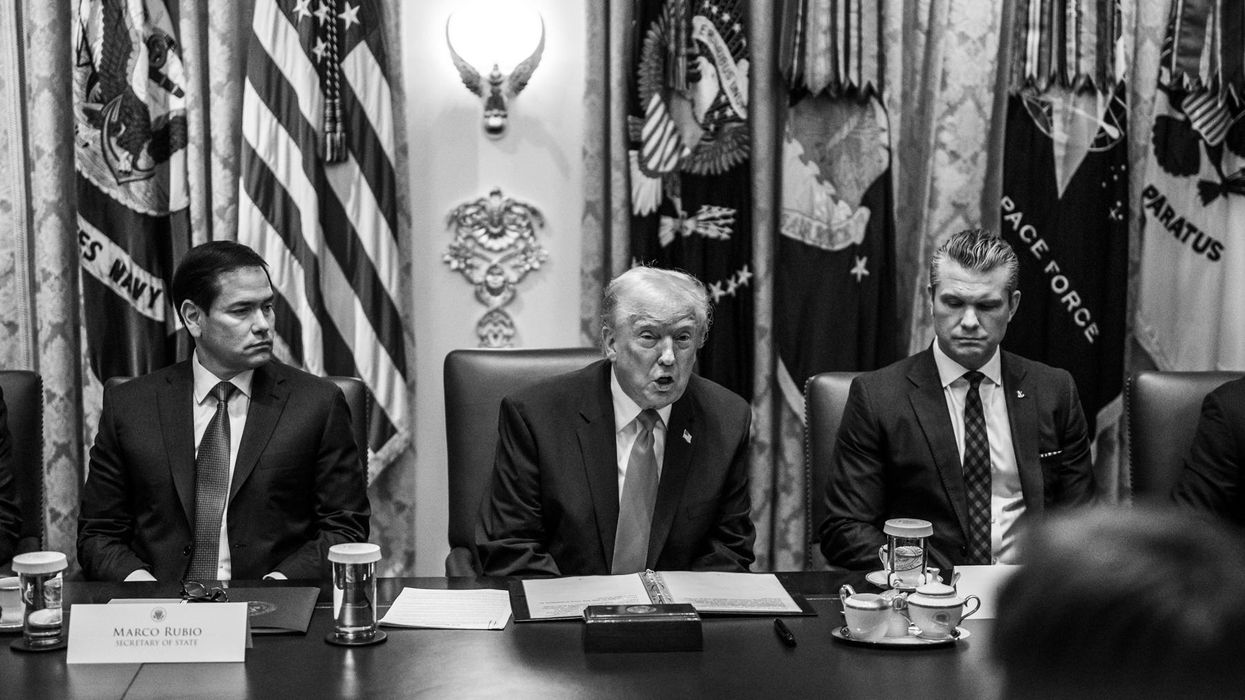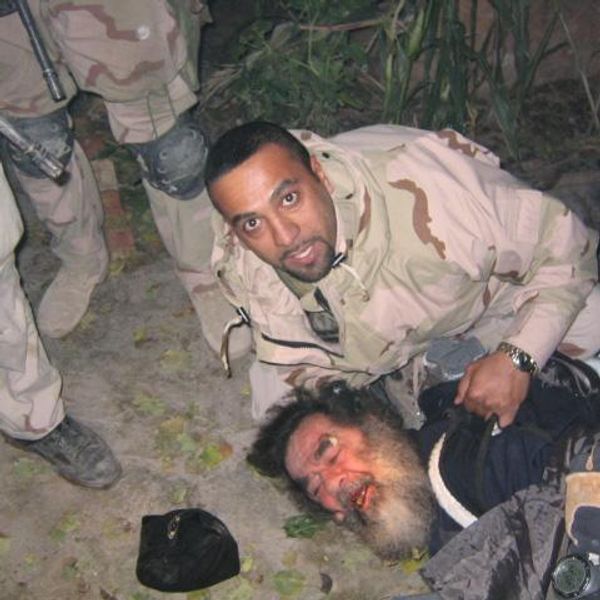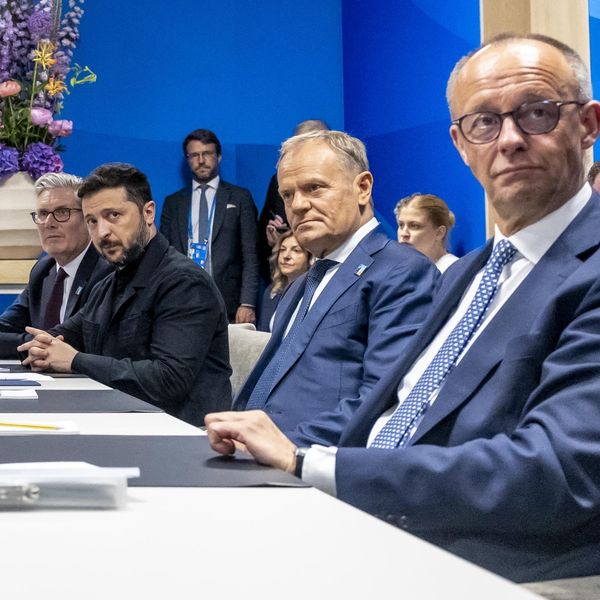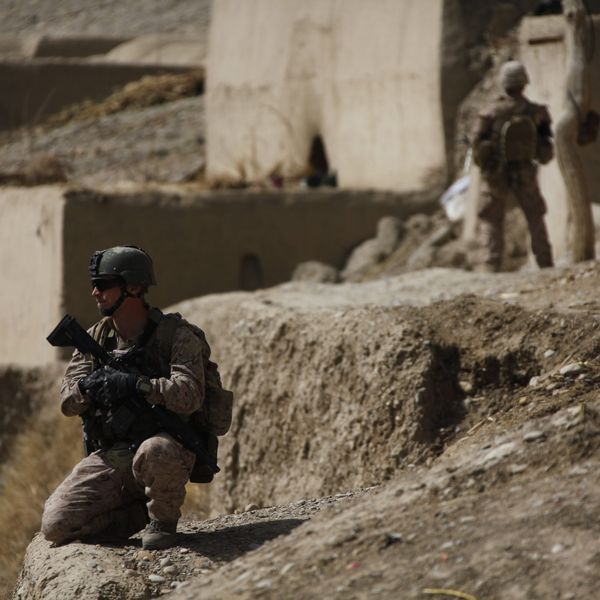In his address to the nation on Wednesday about Iran’s response to the U.S. assassination of a senior Iranian military leader, President Trump pledged that the United States “will immediately impose additional punishing sanctions on the Iranian regime.”
Two days earlier, angered by Iraqi threats to expel U.S. troops because the assassination of the Iranian general was carried out on Iraqi territory, Trump promised to hit Iraq with “sanctions like they’ve never seen before, ever.”
With those statements, the president revived a debate that has been going on since long before the creation of this country: Do economic sanctions work? Are they an effective tool of foreign policy?
The president clearly thinks the answer is yes, but in truth it is much more complicated. Sometimes sanctions bring about the desired result, but more often they do not, and on occasion they can backfire.
"Sanctions have become a cheap way of doing foreign policy, except the costs are often really quite terrible," observed John Mueller, a political scientist at the University of Rochester.
It is certainly true that presidents and organizations often resort to sanctions because they appear to be low-cost, risk-free, bloodless instruments of leverage. That’s what the elders of the Greek city-state of Athens thought in 432 B.C. when they imposed a trade embargo on nearby Megara. One result of that decision was the outbreak of the Peloponnesian War.
In modern times, the United States and the United Nations have imposed sanctions and trade embargoes on countries and individuals all over the world, over issues ranging from nuclear proliferation to the failure to protect sea turtles. In general, the sanctions have been successful only when accepted and enforced by all or a great majority of nations.
The best-known example was the United Nations embargo on trade with apartheid South Africa, which eventually contributed to the end of white minority rule. Sanctions imposed by the United States and the United Nations together on the dictatorial regime of Muammar Gadhafi of Libya in the 1980s and 1990s apparently contributed to his decision to renounce the pursuit of nuclear weapons and to turn over for trial in Scotland two suspects in the bombing of Pan Am flight 103.
Unilateral sanctions are usually less effective because they are easy for the targeted regime to evade. Sixty years of U.S. sanctions on communist Cuba, for example, have failed to dislodge the regime of President Fidel Castro and his successors because other countries have ignored or circumvented the restrictions. The United States is the only member of the Organization of American States still trying to enforce change on the Cuban political system. Cuba cannot be isolated economically if it has open trade with its neighbors, with Canada, and with most of Europe.
President Barack Obama sought to modify some of the restrictions on Cuba. He re-established diplomatic relations with Havana and allowed more Americans to visit, but he could not simply lift the sanctions because Congress wrote them into law in the 1990s. The Trump administration has since reversed most of the modifications put in place by his predecessor. Trump’s decisions may have mollified the strongly anti-communist Cuban American community in Florida, but the impact on the Cuban government itself has been marginal.
Even when there is broad international agreement on sanctions, they are not always successful. Nicolas Maduro is clinging to power in Venezuela, and of course the Kim regime is in firm control of North Korea and continues its efforts to develop nuclear weapons despite decades of economic isolation.
In this country, the impetus for the imposition of sanctions often comes from Congress rather than the president. A law enacted in 1961 requires the State Department to prepare annual reports on human rights conditions in all countries and mandates the imposition of sanctions on egregious violators. All presidents since then, however, have routinely exercised their authority under the law to waive sanctions in the interest of some other, presumably more important, foreign policy objective.
The Trump administration is no different. “The policy of this Administration is to engage with other governments, regardless of their record, if doing so will further U.S. interests,” Secretary of State Mike Pompeo said in the 2018 edition of the reports. That policy leaves the president free to pursue improved relations with North Korea and to maintain his close relationship with Crown Prince Mohammed bin Salman of Saudi Arabia despite the prince’s reported involvement in the 2018 murder of the dissident journalist Jamal Khashoggi.
Even human rights organizations such as Human Rights Watch have sometimes opposed the imposition of sanctions because the restrictions may harm the innocent people of a targeted country rather than its rulers. In 1995, researchers from the Food and Agriculture Organization asserted that international sanctions on the Iraqi regime of Saddam Hussein had caused the deaths of 567,000 children while leaving Hussein in power, unscathed. When Lesley Stahl asked her on “60 Minutes” whether causing the deaths of “more children than than died at Hiroshima was worth it,” Secretary of State Madeleine Albright replied, “That’s a very hard choice, but we think the price is worth it.” For that she was widely vilified and the episode left a stain on her reputation.
In the current faceoff between the United States and Iran, President Trump has made clear that he is committed to maintaining the greatest possible pressure on Iran, through sanctions if possible, by military force if necessary. But it is not readily apparent what arrows remain in the sanctions quiver. The economic squeeze by the United States has already cut Iran’s oil exports to a fraction of what they were a year ago and has bludgeoned several major international corporations into cutting their ties to Iran. The Iranian currency has plummeted in value, and rising prices have caused widespread privation. Yet there is no sign that the Iranians are prepared to capitulate to U.S. demands that it abandon its nuclear program entirely, curtail missile development, and cease its support for trouble-making allies and proxy groups across the Middle East.
One well-established principle of sanctions policy is that the country or group imposing the sanctions must be prepared to take yes for an answer – that is, if the targeted regime, however odious, is prepared to accept some or all of the demands of those who imposed the sanctions, then the sanctions must be lifted or at least modified. That is what President Barack Obama did in the 2015 nuclear agreement by which Iran agreed to curtail its nuclear program. If the target of sanctions perceives that there will be no relief even through compliance, then there is no incentive to comply. Because Trump withdrew from that agreement and reimposed sanctions even though Iran was in compliance, and because of his unremitting hostility to the Tehran regime, the rulers of Iran may well believe that the United States will still try to bring them down no matter how they respond. They can certainly be expected to await the results of November’s presidential election to see if they will still be dealing with this president.
















